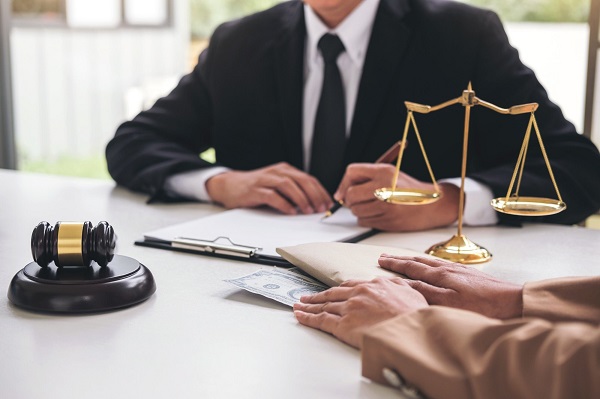Have you ever found yourself in a legal bind, feeling lost and unsure where to turn? Whether it’s a business dispute, family matter, or need for legal defense, the right lawyer can make all the difference. But with so many options out there, how do you find the one who’s truly right for your case?
Finding a reputable lawyer is more than just a quick online search or glancing at advertisements. It’s about finding someone with the expertise to handle your specific legal issue and aligning with your personal needs and communication style. The right lawyer can guide you through complex legal processes, help you avoid costly mistakes, and significantly increase your chances of a favorable outcome. Join us on a journey of finding a lawyer who will not just meet your expectations but exceed them in every way.
Why Hiring the Right Lawyer Matters
A lawyer is more than just someone who fills out legal documents or argues in court. The right lawyer provides strategic advice, ensures compliance with complex regulations, and develops a plan of action to help achieve your goals. Working with a reputable lawyer can:
- Increase your chances of a favorable outcome.
- Help you avoid legal pitfalls and costly mistakes.
- Save you time by streamlining paperwork and handling negotiations effectively.
Choosing an inexperienced or ill-suited lawyer may result in delays, unfavorable settlements, or a complete loss in your case. It makes the selection process essential to your legal success.
Types of Lawyers and Their Specializations
It is crucial to find a lawyer who specializes in the specific area of law relevant to your case. Lawyers tend to focus on certain fields, ensuring that they stay updated with the latest laws and developments. Here are some of the most common types:
- Sexual Harassment Lawyers: Handle workplace harassment and discrimination cases.
- Family and Divorce Lawyers: Help with divorce, child custody, and family disputes.
- Personal Injury Lawyers: Manage cases related to medical malpractice, car accidents, and workplace injuries.
- Criminal Defense Lawyers: Defend clients in criminal cases like DUI, theft, or assault.
- Business Lawyers: Assist with contracts, business formation, mergers, and legal compliance.
- Employment Lawyers: Deal with wrongful termination, wage disputes, and workplace rights.
- Immigration Lawyers: Help with visas, deportation defense, and citizenship applications.
- Real Estate Lawyers: Manage property-related legal matters, including leases, purchases, and zoning issues.
Identifying the type of lawyer you need helps you narrow down your search to those with relevant experience in your area of concern.
How to Find a Reputable Lawyer: Effective Strategies
Personal Referrals
Talking to people in your network who have faced similar legal issues is often the best way to find reliable lawyers. For instance, if you are seeking the best sexual harassment lawyer in New York City, you might reach out to a women’s support group to ask which lawyers they recommend.

However, keep in mind that legal matters are personal. A lawyer who worked well for your friend may not suit your case if your circumstances differ. Also, a lawyer recommended for one type of case may not be appropriate for another—your friend’s divorce lawyer might not have the expertise you need for business incorporation. Still, it’s worth asking that lawyer if they can recommend someone in their network.
Online Platforms and Legal Directories
Several websites and directories help connect people with lawyers based on location and case type. Popular options include:
- Nolo.com: Matches clients with lawyers and provides legal resources.
- Avvo.com: Offers detailed profiles with reviews, endorsements, and disciplinary records for nearly every lawyer in the U.S.
- State Bar Association Websites: Allow you to verify a lawyer’s credentials and ensure they are in good standing.
These platforms provide a wealth of information, including peer endorsements and client reviews, which can help you assess a lawyer’s reputation.
Business Referrals
Trusted business professionals can provide valuable recommendations when searching for a reputable lawyer. For instance, accountants often have connections with business lawyers who specialize in tax law, while real estate agents frequently collaborate with real estate lawyers for property transactions. Similarly, insurance agents may recommend lawyers experienced in handling accident claims. Networking within professional circles not only broadens your search but also ensures you connect with lawyers who are already trusted by other professionals in your field.
Lawyer Referral Services
Many state bar associations run lawyer referral programs that connect clients with attorneys based on their legal needs. However, these services vary in quality. Some referrals are based on strict criteria, such as minimum years of experience, while others list any lawyer in good standing with the bar.
Before using a referral service, ask how the program screens lawyers and what qualifications are required for listing. Be aware that these services may not give insight into a lawyer’s communication style or philosophy.
Key Traits of a Reputable Lawyer
A reputable lawyer will demonstrate the following qualities:
- Look for a lawyer with a proven track record of success in handling cases similar to yours.
- Ensure the lawyer has deep knowledge and expertise in the specific legal issue you are facing.
- Check for positive client reviews, and peer endorsements, and confirm that there are no disciplinary actions against them.
- A reputable lawyer will be clear about their fees, billing practices, and what you can expect throughout the process.
- It’s essential to feel comfortable working with your lawyer and to trust their advice, as this will foster a productive attorney-client relationship.
Choosing a lawyer with these qualities ensures you receive professional expertise and personal support throughout your legal journey.
Choosing the Right Lawyer: What to Look For
Interview Prospective Lawyers
Once you have a shortlist of candidates, schedule interviews. Most lawyers offer free consultations where you can discuss your case. Prepare questions such as:
- What experience do you have in handling cases like mine?
- What is your fee structure, and are there additional costs?
- How will we communicate, and how often can I expect updates?
Use these meetings to gauge their competence and determine if their personality aligns with yours.

Assess Communication and Accessibility
Good lawyers are not only knowledgeable but also responsive. During your initial meetings, observe how quickly they respond to inquiries and how accessible they are. Ask about their preferred methods of communication—whether by phone, email, or through an assistant—and how long it typically takes them to respond.
Keep in mind that while busy lawyers may not respond instantly, they should return your messages within 24 to 48 hours. Unexplained delays in communication can signal poor time management, which could affect your case.
Red Flags to Watch Out For
While most lawyers are professional, some may exhibit warning signs. Avoid lawyers who:
- Guarantee outcomes (no lawyer can predict results with certainty).
- Are vague about their qualifications or experience.
- Have poor communication habits, such as unreturned calls for days or weeks.
If you encounter these issues, it’s best to find another lawyer before proceeding further.
Why Specialization Matters
Choosing a lawyer who specializes in your specific legal issue is important for getting the best results. Specialists know their field very well, which helps them handle complicated cases more effectively than a general lawyer. For example, a real estate lawyer understands property laws and contracts better than someone who practices in many areas. This knowledge can save you time and reduce stress during the legal process.
Specialized lawyers may charge higher fees, but their expertise can lead to quicker resolutions and fewer mistakes. When you work with a specialist, you are more likely to achieve a successful outcome. In the long run, having the right lawyer can help you avoid costly issues and give you confidence in your case.
Conclusion
Finding the right lawyer takes time and effort, but it’s worth it. Do your homework by asking for recommendations, checking online reviews, and meeting with a few lawyers before deciding. Look for someone who knows a lot about your type of legal problem and makes you feel comfortable. Remember, a good lawyer can help you avoid mistakes, save time and money, and improve your chances of winning your case. Don’t rush this important decision – take your time to find a lawyer you can trust to guide you through your legal journey. With the right lawyer by your side, you’ll feel more confident facing any legal challenge that comes your way.




